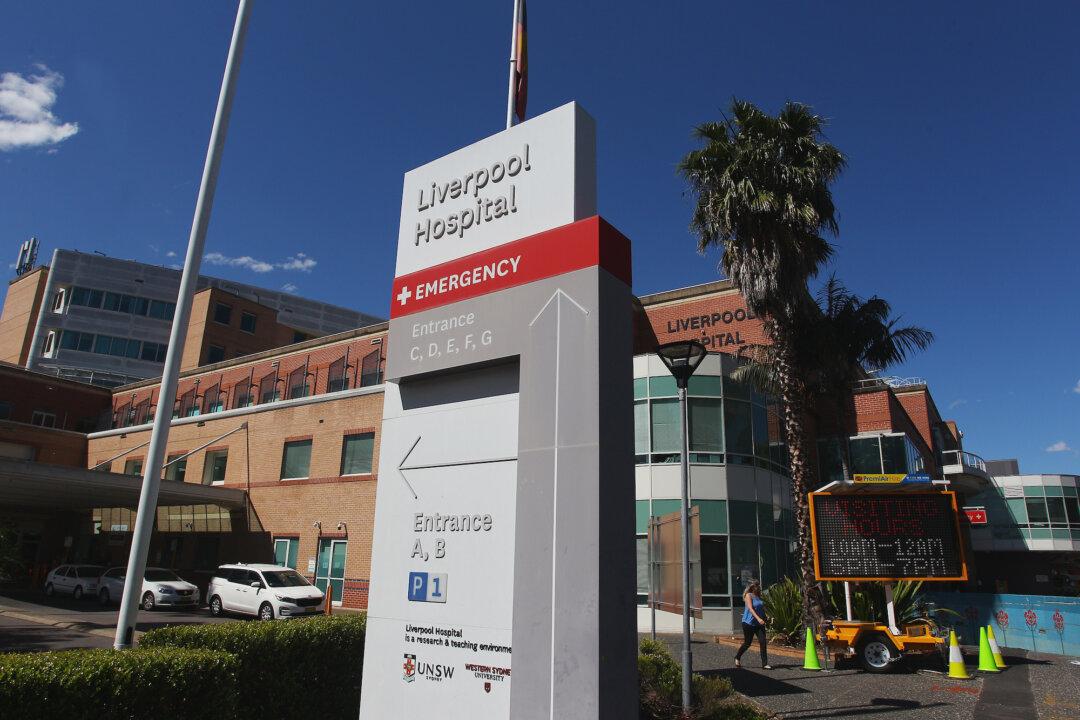Nurses have been retraining to work in intensive care units to help treat the sickest COVID-19 patients in the Australian state of New South Wales (NSW), state officials said on Aug. 31.
Liverpool Hospital ICU Manager Michelle Dowd said there was a “call to arms,” and a lot of nurses had been deployed to her.





